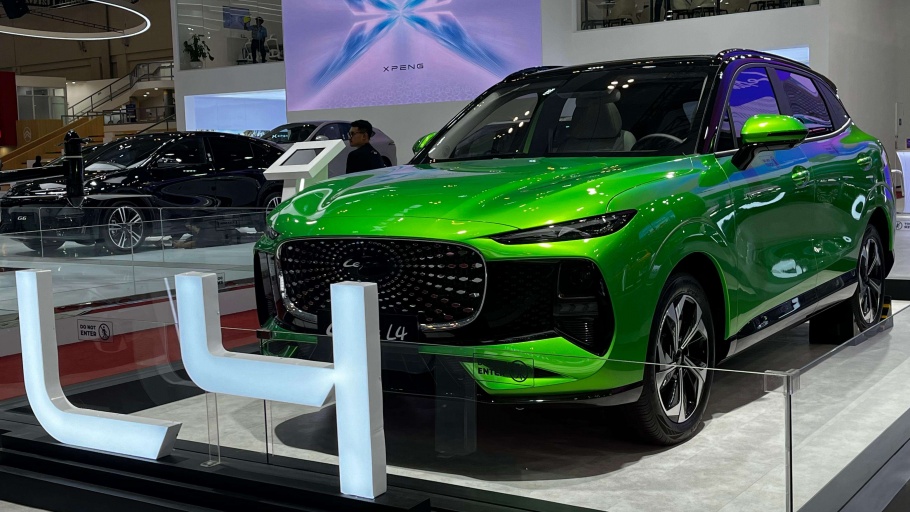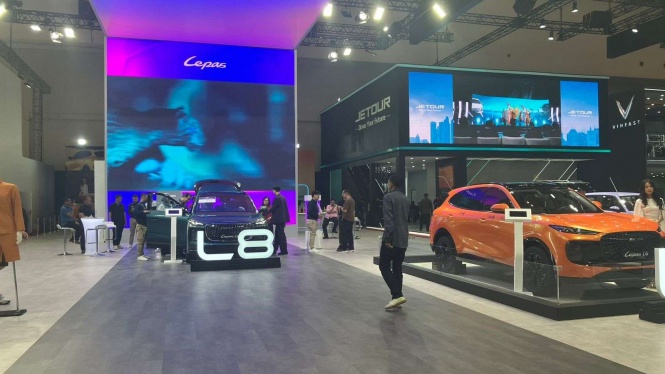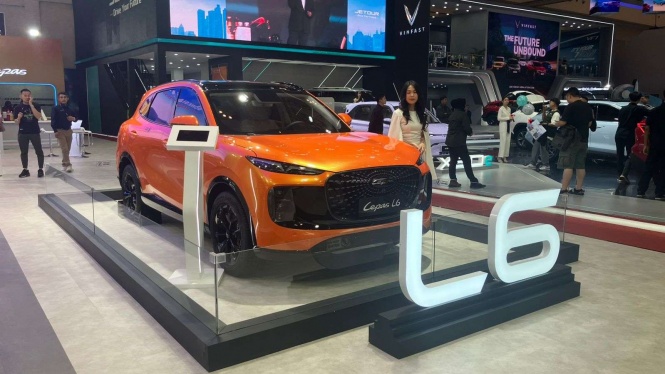Getting to Know Chery's Hybrid Car Options in Indonesia
02 February 2026, 09:00 WIB
A representative of Chery Group's sub-brand revealed differences in car buyer characteristics between China and Indonesia.

KatadataOTO – Chinese manufacturers make many market strategy adjustments when bringing products to Indonesia. This is because the consumer characteristics are very different.
According to a representative from Lepas, one of the Chinese brands that debuted in the country, there are several unique differences between Chinese and Indonesian consumers.
“In China, the younger generation like me really likes new energy vehicles (NEVs or environmentally friendly vehicles),” said Ricky He, Deputy Country Director of Lepas Indonesia in Tangerang, recently.
Then, the way they conduct transactions is also very different from Indonesian consumers.

Indonesian people, according to Ricky's observation, prefer to come directly to the dealership to see the desired vehicle.
Potential customers are even willing to compare various models and must test drive them directly before finally being convinced to make a purchase.
“When we discussed with representatives in Indonesia, they said that method is not suitable here,” said Ricky.
Buyers in Indonesia tend to prefer discussing directly with salespeople and also negotiating for things like discounts or price cuts before the transaction.
Physical proof like a vehicle order form (SPK) is a must-have for customers in the country. Unlike in China.
“So it's very different from in China. For me personally, having to go from store to store, comparing vehicles, seems tiring,” said Ricky.
In China, Ricky said his team is developing an application for prospective car buyers of Lepas to purchase vehicles conveniently through their gadgets.
This strategy will not be used in Indonesia because it is not suitable.
“But the generation above me, they have to see the vehicle in person and hold the document (SPK), as well as look for discounts,” said Ricky.
So there are a number of challenges that Lepas needs to face to adapt to selling vehicles in the country.
Moreover, this sub-brand of the Chery Group targets the younger generation who like stylish vehicles for daily mobility in urban areas.
“Before coming to Indonesia, I discussed with many parties. The most important thing is that consumers here think about lifestyle and driving experience,” said Ricky.

Lepas's target consumers in Indonesia are those who want a premium driving experience at a competitive price.
For your information, Lepas is bringing three flagship models to be introduced for the first time at the GIIAS 2025 event, namely the L4, L6, and L8.
The Lepas L8 is the model prioritized to launch first. It will most likely use plug-in hybrid electric vehicle technology as it is considered to have potential by the Chery Group.
Related Articles
02 February 2026, 09:00 WIB
30 January 2026, 15:00 WIB
30 January 2026, 14:06 WIB
28 January 2026, 15:00 WIB
28 January 2026, 11:00 WIB
Latest
02 February 2026, 10:00 WIB
Sales are trailing competitors, and MG declined to elaborate on its sales target for 2026.
02 February 2026, 09:00 WIB
Chery hybrid cars offer more benefits to consumers in Indonesia, making them a popular choice.
02 February 2026, 08:00 WIB
The Police launched Operation Keselamatan Jaya 2026 to curb the number of accidents and traffic violations on the roads.
02 February 2026, 07:00 WIB
Yamaha is confident that the target set by AISI can be achieved this year, with several conditions.
01 February 2026, 17:17 WIB
Toyota FT 86, Vespa Corsa 125, and Toyota Alphard are three of Reza Arap's many vehicles.
01 February 2026, 15:00 WIB
Shell, BP AKR, and Vivo lowered fuel prices for the February 2026 period by varying amounts.
01 February 2026, 13:00 WIB
Toyota Motor Corporation is paying closer attention to its sales in Indonesia, which have significantly declined.
01 February 2026, 11:00 WIB
Toyota group sales break a new record and become the world's best-selling manufacturer in 2025, surpassing Volkswagen.